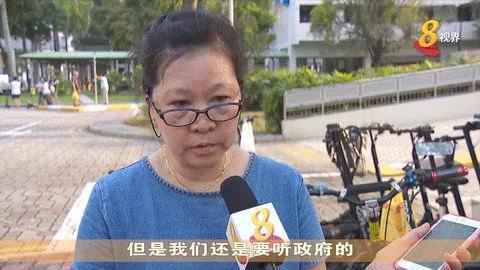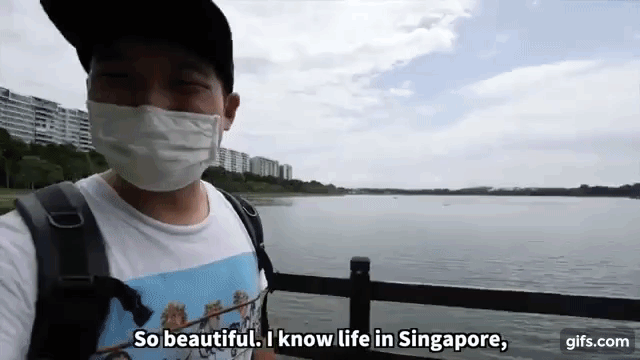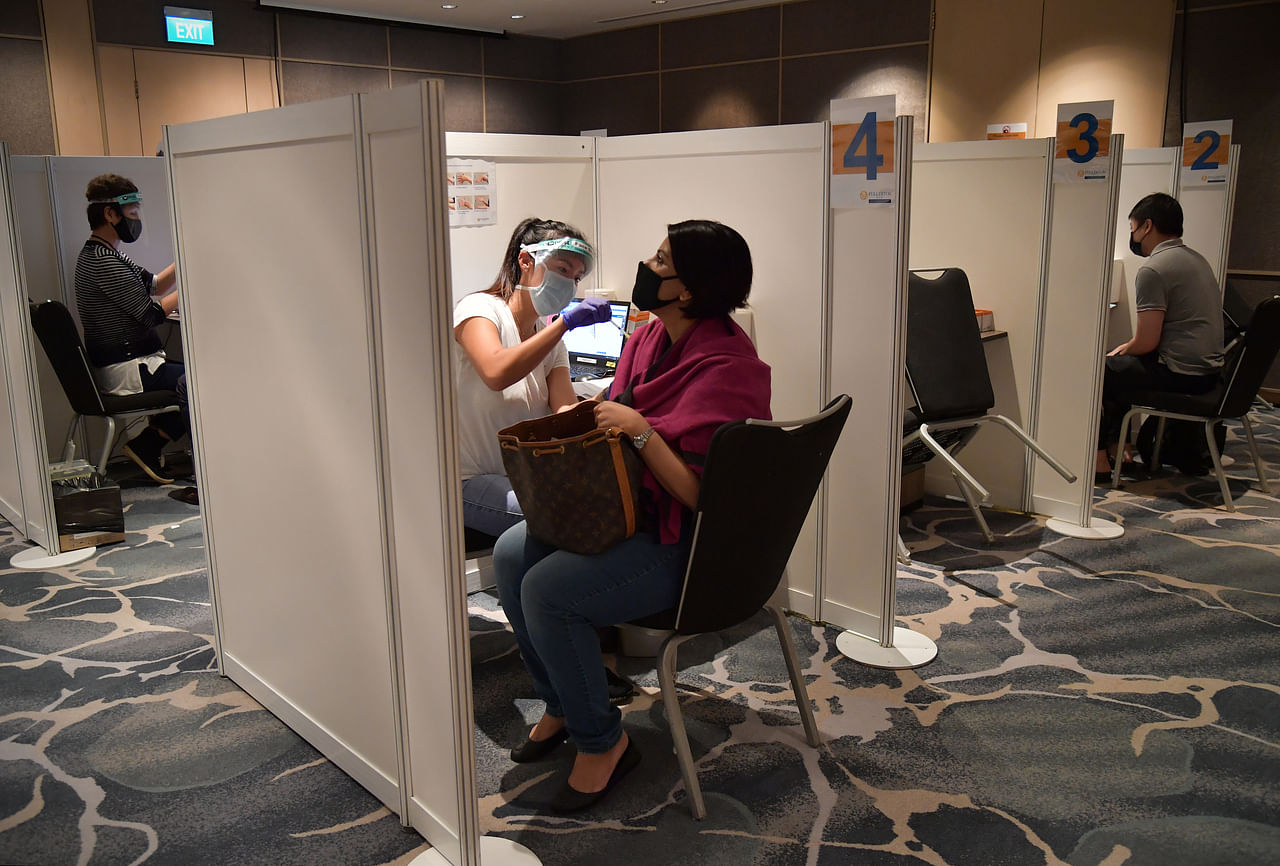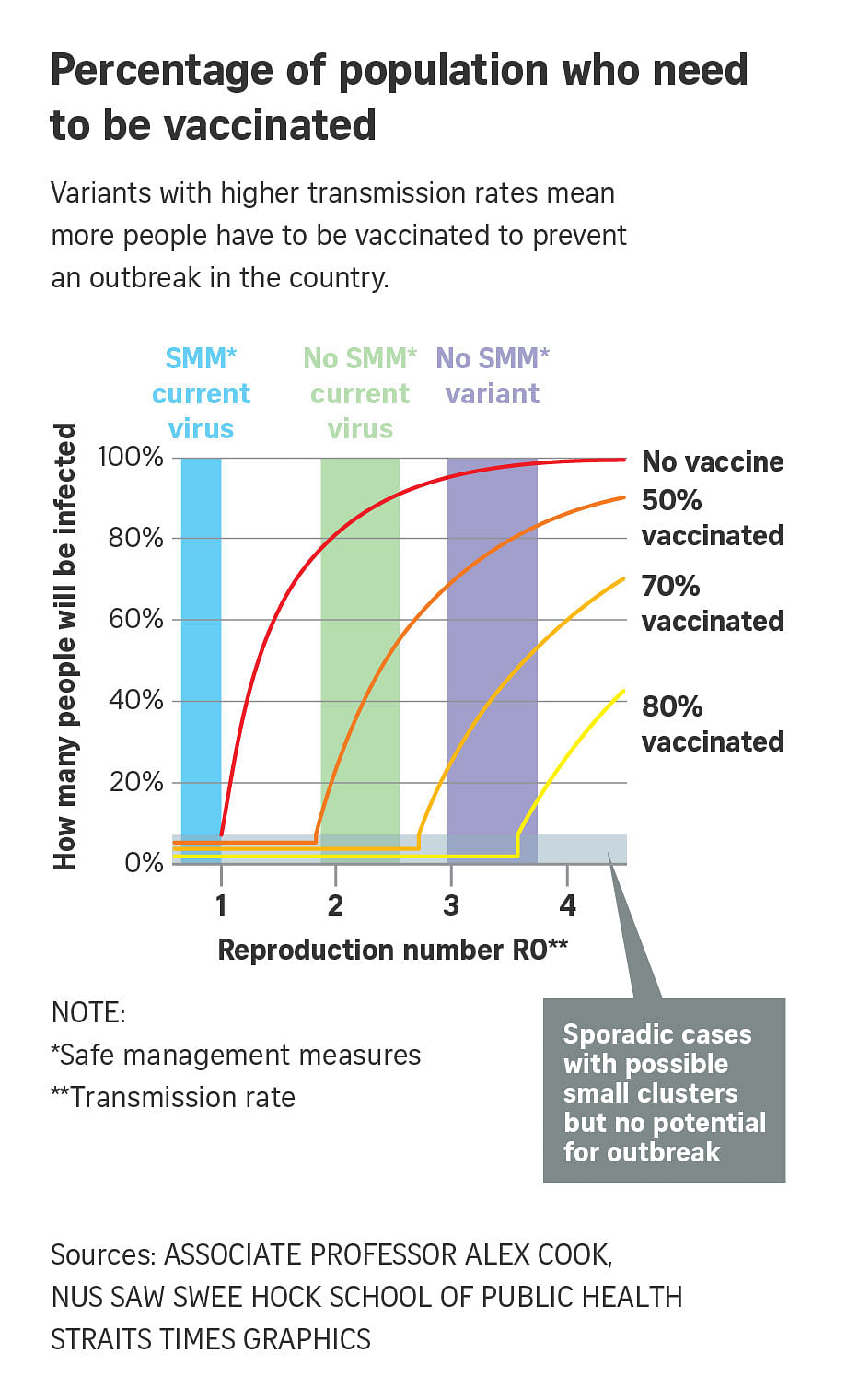"If you don't vote PAP into Bukit Panjang, Bukit Panjang will rot." Brings back memories of how Potong Pasir and Aljunied was purposely neglected by PAP.
Singapore GE2020: Bukit Panjang to be managed by separate town councils if votes for two constituencies split

The PAP's Mr Liang Eng Hwa is battling the SDP's Professor Paul Tambyah for the Bukit Panjang seat.ST PHOTOS: JOEL CHAN, TIMOTHY DAVID
Tiffany Fumiko Tay
Cheow Sue-Ann
SINGAPORE - The People's Action Party (PAP) candidates running in Holland-Bukit Timah GRC and Bukit Panjang SMC will continue to take a team approach to town management if elected, with plans such as lift upgrading and improved connectivity in store.
They noted, however, that Bukit Panjang town will be served by separate town councils managed by different political parties if the PAP does not retain both constituencies in the general election.
Mr Liang Eng Hwa, who is battling the Singapore Democratic Party's (SDP) Professor Paul Tambyah for the Bukit Panjang seat, is tipped to be the next chairman of the Holland-Bukit Panjang Town Council if elected.
Parts of Bukit Panjang fall under Holland-Bukit Timah GRC, and the town council currently serves both constituencies.
But if Mr Liang does not win, Bukit Panjang SMC will be run by a separate town council, and there may be some differences that "residents can feel", said Ms Sim Ann, who is part of the PAP's incumbent team also facing the SDP in Holland-Bukit Timah GRC.
"The town council is politically constituted. In other words, the team that wins in this area, they get to constitute the town council, and they will run the town in a way that they feel is appropriate for the residents," Ms Sim, who is a Senior Minister of State, told the media on Sunday (July 5).
She noted that the Bukit Panjang area is made up of Bukit Panjang SMC as well as the Zhenghua and Cashew wards under Holland-Bukit Timah GRC.
"I think that for our Bukit Panjang voters and residents, it is a very valid question to think about - what if Bukit Panjang SMC is no longer run by the same town council as the neighbouring divisions."
Within the areas served by the Holland-Bukit Panjang Town Council, the Bukit Panjang and Zhenghua wards have the largest number of Housing Board dwelling units, with about 13,000 each, she said.
"We believe it's very important for the town improvements, as well as amenities such as covered walkways, connectivity, infrastructure, it should be consistent and planned holistically, so that no precinct or no part of the town feels left out or left behind."
The majority of residents in the Bukit Timah and Ulu Pandan wards live in private estates, but there are also a significant number that live in scattered HDB estates, Ms Sim noted.
"In order for the residents in these small HDB estates to enjoy similar economies of scale when it comes to S&CC (service and conservancy charges) services, landscaping and maintenance services, they would have to be part of a much larger town council.
"So this is the reason why we've always felt that we have to be together," Ms Sim said.
Members of Holland-Bukit Timah GRC's PAP team have been seen campaigning with Mr Liang in Bukit Panjang in recent days.
Asked how big a concern the potential loss of the Bukit Panjang seat is and whether the GRC team is confident of its own chances, Ms Sim replied that the town council's five divisions work together "like the five fingers of one hand".
"So being together as a team is very natural," she said.
Mr Liang said some residents have expressed concern about Bukit Panjang's town management and what would happen if it is split into two, adding that he hopes his experience in overseeing the area will appeal to voters.
"One thing in Bukit Panjang town that we have done well is the connectivity of the town... there is more to do," he said. Other upcoming plans include home improvement programmes and lift upgrading works.
He was speaking to reporters after a walkabout in Bukit Panjang, where he was accompanied by all four PAP candidates for Holland-Bukit Timah GRC.
Mr Liang, who has overseen the Zhenghua ward since 2006, is contesting Bukit Panjang SMC after replacing Dr Teo Ho Pin, who is retiring from politics.
Timbre Group co-founder Edward Chia has replaced Mr Liang in the PAP team for Holland-Bukit Timah GRC.
When approached during his walkabout in the same area later, Prof Tambyah, who was with volunteers, said the SDP also hopes to run the two constituencies under one town council.
But he added that if the PAP wins one constituency and SDP the other, "we are very happy to work with them".
"When it comes down to it, we're all Singaporeans and we're working for the good of the people... I personally have no issue with working with the Holland-Bukit Timah town council, and I'm sure my colleagues in Holland-Bukit Timah would have no issue working with the Bukit Panjang town council if we should be on opposite sites of the fence," he said.
Prof Tambyah, who is SDP's chairman, said his team has a clear town council management plan.
"The minute that change of town council occurs, all the accounts must be very transparently displayed, and everybody must have access to them."
Singapore GE2020: Bukit Panjang to be managed by separate town councils if votes for two constituencies split

The PAP's Mr Liang Eng Hwa is battling the SDP's Professor Paul Tambyah for the Bukit Panjang seat.ST PHOTOS: JOEL CHAN, TIMOTHY DAVID
Tiffany Fumiko Tay
Cheow Sue-Ann
SINGAPORE - The People's Action Party (PAP) candidates running in Holland-Bukit Timah GRC and Bukit Panjang SMC will continue to take a team approach to town management if elected, with plans such as lift upgrading and improved connectivity in store.
They noted, however, that Bukit Panjang town will be served by separate town councils managed by different political parties if the PAP does not retain both constituencies in the general election.
Mr Liang Eng Hwa, who is battling the Singapore Democratic Party's (SDP) Professor Paul Tambyah for the Bukit Panjang seat, is tipped to be the next chairman of the Holland-Bukit Panjang Town Council if elected.
Parts of Bukit Panjang fall under Holland-Bukit Timah GRC, and the town council currently serves both constituencies.
But if Mr Liang does not win, Bukit Panjang SMC will be run by a separate town council, and there may be some differences that "residents can feel", said Ms Sim Ann, who is part of the PAP's incumbent team also facing the SDP in Holland-Bukit Timah GRC.
"The town council is politically constituted. In other words, the team that wins in this area, they get to constitute the town council, and they will run the town in a way that they feel is appropriate for the residents," Ms Sim, who is a Senior Minister of State, told the media on Sunday (July 5).
She noted that the Bukit Panjang area is made up of Bukit Panjang SMC as well as the Zhenghua and Cashew wards under Holland-Bukit Timah GRC.
"I think that for our Bukit Panjang voters and residents, it is a very valid question to think about - what if Bukit Panjang SMC is no longer run by the same town council as the neighbouring divisions."
Within the areas served by the Holland-Bukit Panjang Town Council, the Bukit Panjang and Zhenghua wards have the largest number of Housing Board dwelling units, with about 13,000 each, she said.
"We believe it's very important for the town improvements, as well as amenities such as covered walkways, connectivity, infrastructure, it should be consistent and planned holistically, so that no precinct or no part of the town feels left out or left behind."
The majority of residents in the Bukit Timah and Ulu Pandan wards live in private estates, but there are also a significant number that live in scattered HDB estates, Ms Sim noted.
"In order for the residents in these small HDB estates to enjoy similar economies of scale when it comes to S&CC (service and conservancy charges) services, landscaping and maintenance services, they would have to be part of a much larger town council.
"So this is the reason why we've always felt that we have to be together," Ms Sim said.
Members of Holland-Bukit Timah GRC's PAP team have been seen campaigning with Mr Liang in Bukit Panjang in recent days.
Asked how big a concern the potential loss of the Bukit Panjang seat is and whether the GRC team is confident of its own chances, Ms Sim replied that the town council's five divisions work together "like the five fingers of one hand".
"So being together as a team is very natural," she said.
Mr Liang said some residents have expressed concern about Bukit Panjang's town management and what would happen if it is split into two, adding that he hopes his experience in overseeing the area will appeal to voters.
"One thing in Bukit Panjang town that we have done well is the connectivity of the town... there is more to do," he said. Other upcoming plans include home improvement programmes and lift upgrading works.
He was speaking to reporters after a walkabout in Bukit Panjang, where he was accompanied by all four PAP candidates for Holland-Bukit Timah GRC.
Mr Liang, who has overseen the Zhenghua ward since 2006, is contesting Bukit Panjang SMC after replacing Dr Teo Ho Pin, who is retiring from politics.
Timbre Group co-founder Edward Chia has replaced Mr Liang in the PAP team for Holland-Bukit Timah GRC.
When approached during his walkabout in the same area later, Prof Tambyah, who was with volunteers, said the SDP also hopes to run the two constituencies under one town council.
But he added that if the PAP wins one constituency and SDP the other, "we are very happy to work with them".
"When it comes down to it, we're all Singaporeans and we're working for the good of the people... I personally have no issue with working with the Holland-Bukit Timah town council, and I'm sure my colleagues in Holland-Bukit Timah would have no issue working with the Bukit Panjang town council if we should be on opposite sites of the fence," he said.
Prof Tambyah, who is SDP's chairman, said his team has a clear town council management plan.
"The minute that change of town council occurs, all the accounts must be very transparently displayed, and everybody must have access to them."





















